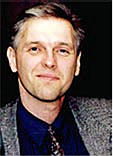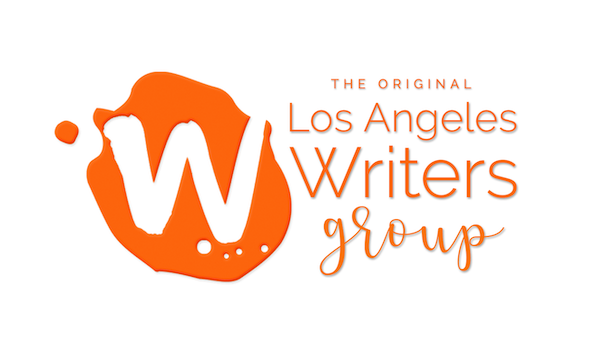The Hero’s Story
by Rob Tobin
It’s always the hero’s story. Whether you are writing a novel, stage play, screenplay or short story, it is the hero’s story, set against some backdrop — be it boxing, war, the world of business, small town America, university life, the police force and/or the world of crime, Africa, the Titanic, sports, whatever.
When a story goes wrong, it is often because the author has forgotten that it is always the hero’s story and not the backdrop’s story of the theme’s story or the action’s story.
“Raging Bull” was about Jake LaMotta, set against the backdrop of boxing.
“Raiders of the Lost Ark” was about Indiana Jones, set against the Second World War and the world of archaeology.
“Casablanca” was about Rick, set against the backdrop of World War II Morocco.
What happens if you forget that it is always the hero’s story? Your story becomes a “boxing” story, or a “World War II” story, or a “sports” story, or a “coming of age” story, or a “disaster” story and in each instance your story will have a generic feel to it and will be indistinguishable from any other crummy “war,” “storm,” or “sports” story.
It is always the hero’s story. This is why “Schindler’s List,” “Sophie’s Choice” and “Life Is Beautiful” are all very different stories, even though they are all about the Holocaust. It’s why “Raging Bull,” “Requiem for a Heavyweight” and “Rocky” are all very different movies, even though they are all about boxing. It’s why “The Longest Day,” “Stalag 17” and “Saving Private Ryan” are all tremendously different stories, despite all being “about” World War II. In fact none of these stories is about war, but rather about individual heroes caught in the circumstance of war, and how these heroes, given who they are, and what they have experienced up to this point in their lives, react to war.
The hero’s story drives your theme, determines your dialogue, and shapes your plot. “Rocky” could have been about hockey, football, war, politics or big business and the story would in essence have been the same, given that your hero is a man who is given the opportunity of a lifetime but cannot take advantage of it without finding a way to achieve some level of faith in himself as a human being. Note that I did not say “as a boxer.” That’s because a viable hero will be flawed in some way that goes beyond the physical. If all Rocky needed to do to win was build bigger muscles or throw a better hook, the story would not have captured the imagination of a generation, won the Academy award and become an instant classic. This was the story of a man who had to find a way to begin believing in himself, to believe that he could “go the distance” despite the fact that his own father had raised him to doubt himself, to feel he was stupid and worthless. In that sense, then, it was the story of Everyman. Everyman is a GREAT hero for an author to have.
But how could Rick in exotic war-torn Casablanca, or Indiana in exotic war-torn Africa be “Everymen?” They’re stronger, smarter, and braver than most of us will ever be. And yet we identify with them because the crux of the story isn’t about whether they defeat the Nazis or recover the Ark, but whether they can become better human beings. THAT is why we identify with them, cheer for them, and fear for them.
So remember that it is first, foremost and always the hero’s story and this alone will improve your story and your storytelling skills.
 Rob Tobin is a screenwriter, script doctor, writing coach, lecturer, acknowledged expert on screenplay structure, and author of “How to Write High Structure, High Concept Movies.” Rob has written both features and sitcoms, individually and with his favorite writing partner and wife Leslie Coogan (Jackie Coogan’s daughter). His latest project is the feature script “Better Than Human” for Living Earth productions. Rob rewrote “Across the Red Line”, a sports drama for the Cannell Studios; wrote the treatment for the feature script “Guard of Honor,” adapted from the best-selling novel of the same title for Midnight Soldiers; wrote the treatment for “The A-Team” for Cannell; rewrote the western farce “Zen Cowboy” for Triad Films; the sitcom pilot “Time for Joy” for Riviera Entertainment and; the sitcom pilot “I Love Ludo” for Bu West Productions, which led to a development deal with Fox. Rob is a former VP of Writers Boot Camp, one of the country’s largest private screenwriting schools, has lectured, given workshops and coached writers from across the country. He has participated in panels and given lectures, book signings and workshops at various major screenwriting conferences including the 2002 Screenwriting Expo, Storycon, the Writers Guild of America annual screenwriting conference and Moondance. As a story analyst, Rob read more than 5,000 screenplays for Goldwyn, Spelling, Interscope, TriStar, TriMark and HBO, among others. He helped establish a feature film department for television mogul Stephen J. Cannell (“The A-Team,” “Hunter,” “The Commish”).
Rob Tobin is a screenwriter, script doctor, writing coach, lecturer, acknowledged expert on screenplay structure, and author of “How to Write High Structure, High Concept Movies.” Rob has written both features and sitcoms, individually and with his favorite writing partner and wife Leslie Coogan (Jackie Coogan’s daughter). His latest project is the feature script “Better Than Human” for Living Earth productions. Rob rewrote “Across the Red Line”, a sports drama for the Cannell Studios; wrote the treatment for the feature script “Guard of Honor,” adapted from the best-selling novel of the same title for Midnight Soldiers; wrote the treatment for “The A-Team” for Cannell; rewrote the western farce “Zen Cowboy” for Triad Films; the sitcom pilot “Time for Joy” for Riviera Entertainment and; the sitcom pilot “I Love Ludo” for Bu West Productions, which led to a development deal with Fox. Rob is a former VP of Writers Boot Camp, one of the country’s largest private screenwriting schools, has lectured, given workshops and coached writers from across the country. He has participated in panels and given lectures, book signings and workshops at various major screenwriting conferences including the 2002 Screenwriting Expo, Storycon, the Writers Guild of America annual screenwriting conference and Moondance. As a story analyst, Rob read more than 5,000 screenplays for Goldwyn, Spelling, Interscope, TriStar, TriMark and HBO, among others. He helped establish a feature film department for television mogul Stephen J. Cannell (“The A-Team,” “Hunter,” “The Commish”).

You must be logged in to post a comment Login